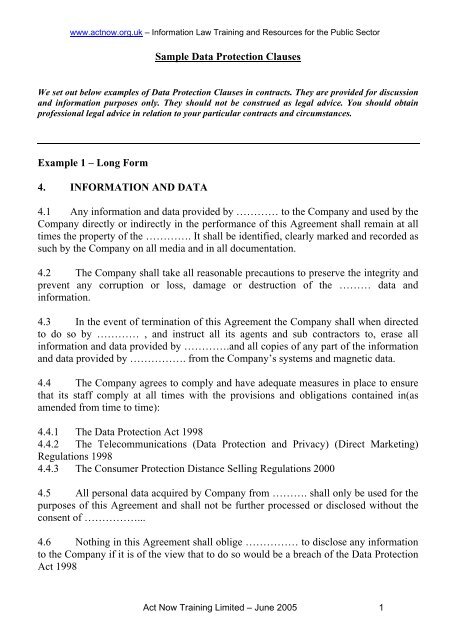As a business owner, you’ve likely heard about major data breaches in the news over the past few years. Cybersecurity breaches grab headlines, damage reputations, and cost businesses millions. But what does that mean for your business? How can you prevent a similar catastrophe from happening? Let’s explore how to protect your business from data breaches and the steps you can take today to stay safe.
What is a Data Breach?
A data breach occurs when an unauthorized party gains access to sensitive, confidential, or otherwise protected information. This can result from malicious hackers, employees’ negligence, or outdated security measures. According to the Attrition database, reported cases of data breaches in the U.S. increased from 22 in 2004 to 326 in 2006. Since then, the numbers have continued to rise. So why is this happening?
Three Key Factors
- Identity theft. It’s a low-risk, high-return option for organized crime. Unlike traditional robbery, digital crime poses fewer risks for the criminal while offering a higher payout.
- New legislation. Legal and regulatory compliance initiatives have led to increased awareness and reporting of data breaches. Penalties for failing to protect data have become more severe.
- Mobile data storage. The widespread use of mobile devices and cloud storage has eliminated many old-school security measures, making it more difficult to protect sensitive information.
The True Cost of a Data Breach
The Ponemon Institute estimates the cost of a data breach to be around $150 per compromised record. That may not sound like much at first, but when you consider that a single breach can involve thousands or even millions of records, you can see how the costs add up quickly. These expenses include legal fees, lost business, damaged reputation, and the expenses associated with fixing the problem. Preventing a data breach is by far the more cost-effective choice.
How To Protect Your Business: An Action Plan
Taking a proactive approach is essential when it comes to safeguarding your business from data breaches. Here are some actionable steps you can take today:
- Encrypt all data on laptops and mobile devices. This includes personal computers, tablets, smartphones, and other devices that store sensitive information. Always use strong, unique passwords and take advantage of two-factor authentication when available.
- Encrypt removable and portable media. Any storage device that can be carried around, such as USB drives and external hard drives, needs to be encrypted and password-protected.
- Establish procedures for data destruction. Develop a protocol for properly disposing of old computers, files, and sensitive documents. This includes shredding paper records and securely wiping digital data.
- Stay up-to-date on PCI DSS requirements. If your business accepts credit card payments, ensure you meet the Payment Card Industry Data Security Standard (PCI DSS) guidelines.
- Train your staff. Educate employees about the importance of data protection and their legal responsibilities. Regularly update and reinforce this training.
- Filter outbound communication. Use software that monitors and filters email and instant messages for potential leaks of sensitive information.
- Implement strong access control measures. Grant access to sensitive data only to those who absolutely need it, and regularly review permissions to ensure they’re still relevant.
- Create an incident management plan. Be prepared to respond quickly and efficiently to any potential data breaches. Act with transparency and urgency to minimize potential damages.
How Can Businesses Minimize the Financial Impact of Data Breaches?
Data breaches can have severe financial repercussions for businesses. From legal fees and regulatory fines to credibility damage and customer churn, the costs can quickly add up. To minimize the financial impact, businesses must prioritize proactive security measures like regular vulnerability assessments and investing in robust cybersecurity systems. By remaining vigilant and prioritizing data protection, businesses can mitigate the detrimental effects of breaches. But remember, businesses breached: the meter keeps running.
How Can Active Continuous Monitoring Help Businesses Protect Against Data Breaches?
Active continuous monitoring for businesses is essential in protecting against data breaches. This proactive approach involves real-time tracking and analysis of network traffic, allowing potential threats to be identified and addressed promptly. By constantly monitoring their systems, businesses can detect and respond to any security vulnerabilities swiftly, mitigating the risk of data breaches and their severe consequences.
How Does PCI Compliance Help Protect Against Data Breaches?
Pci compliance and business security go hand in hand when it comes to protecting against data breaches. By following the strict guidelines set by the Payment Card Industry Data Security Standard (PCI DSS), organizations can enhance their data security measures. Implementing encrypted transactions, maintaining secure networks, and regularly monitoring systems are key components of PCI compliance that safeguard sensitive customer information, reducing the risk of data breaches and ensuring a secure business environment.
What Steps Can I Take to Protect My Business from a Deliberate Attack on Credit Card Data?
To shield your business from the risk of credit card data stolen and distributed, there are crucial steps to follow. Implement robust data encryption protocols, engage in regular security audits, and enforce strict access controls. Educate employees on secure practices and invest in firewalls and intrusion detection systems. Stay vigilant and promptly address any security vulnerabilities that may arise.
Let ZZ Servers Help Protect Your Business
Taking these steps is crucial for safeguarding your company’s valuable data. However, many business owners don’t have the bandwidth or expertise to manage these complex cybersecurity tasks on their own. That’s where ZZ Servers comes in. As experts in information security, our solutions can protect your company from data breaches. Contact us today to learn how our expertise can give you peace of mind when it comes to your business’s cybersecurity.



